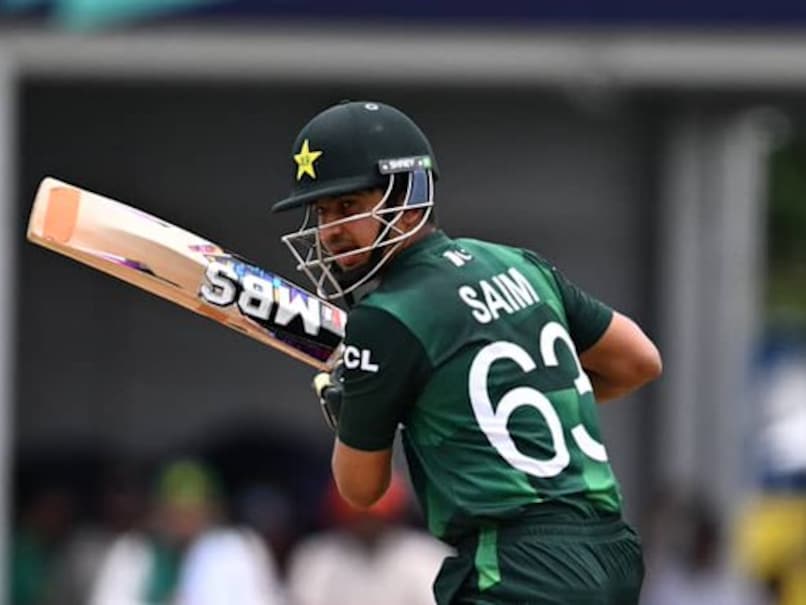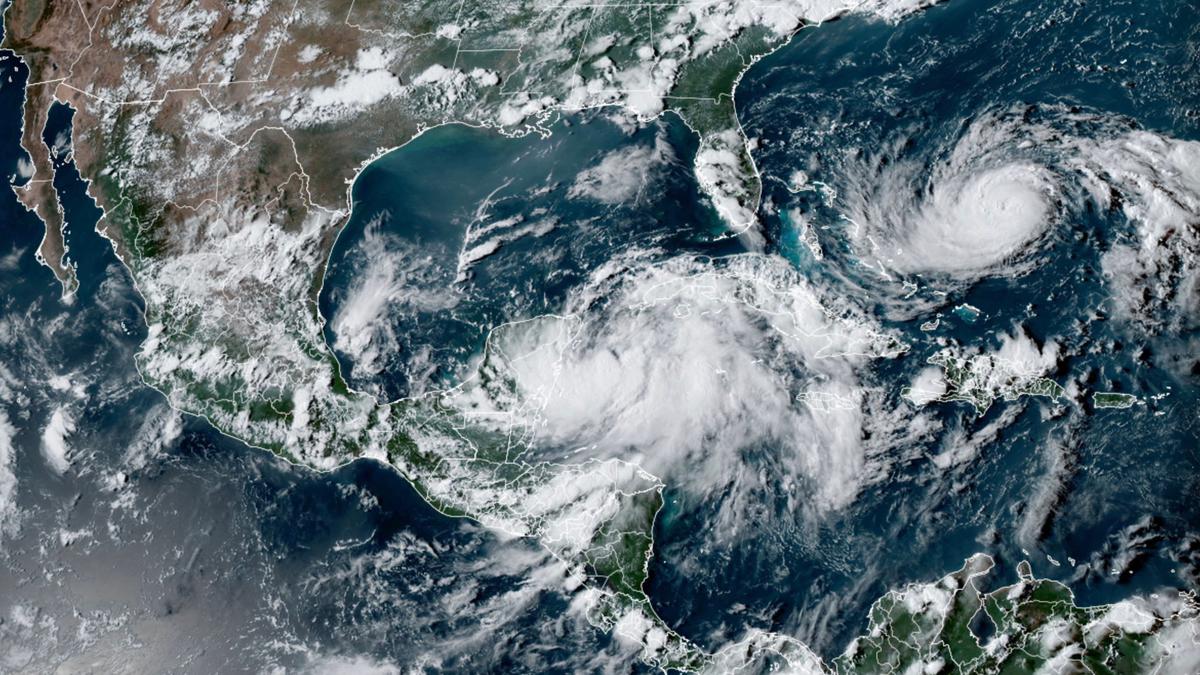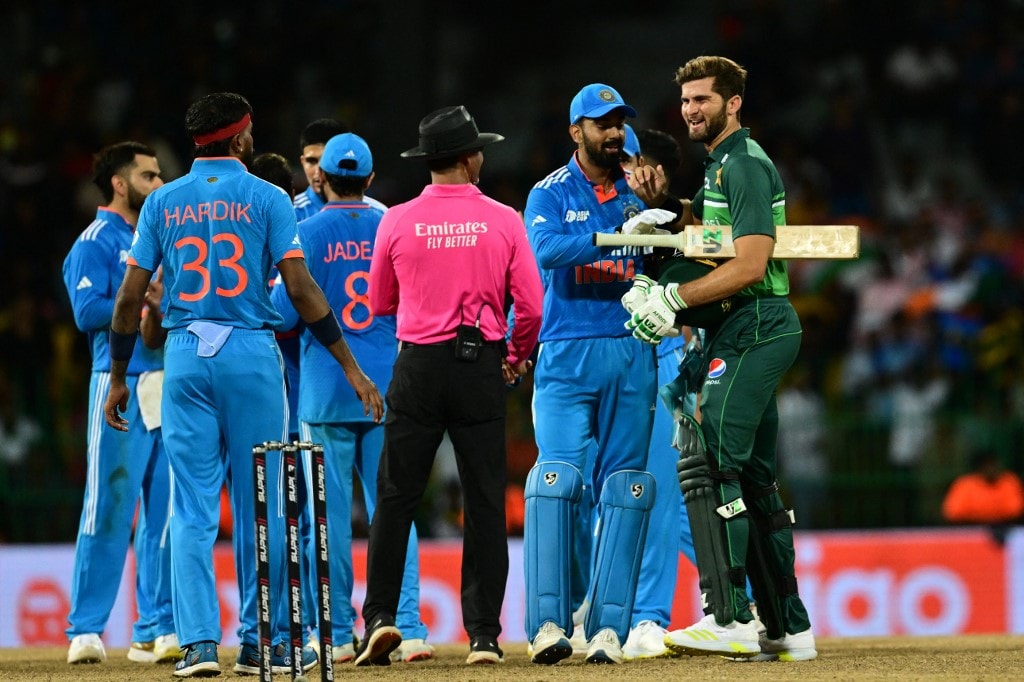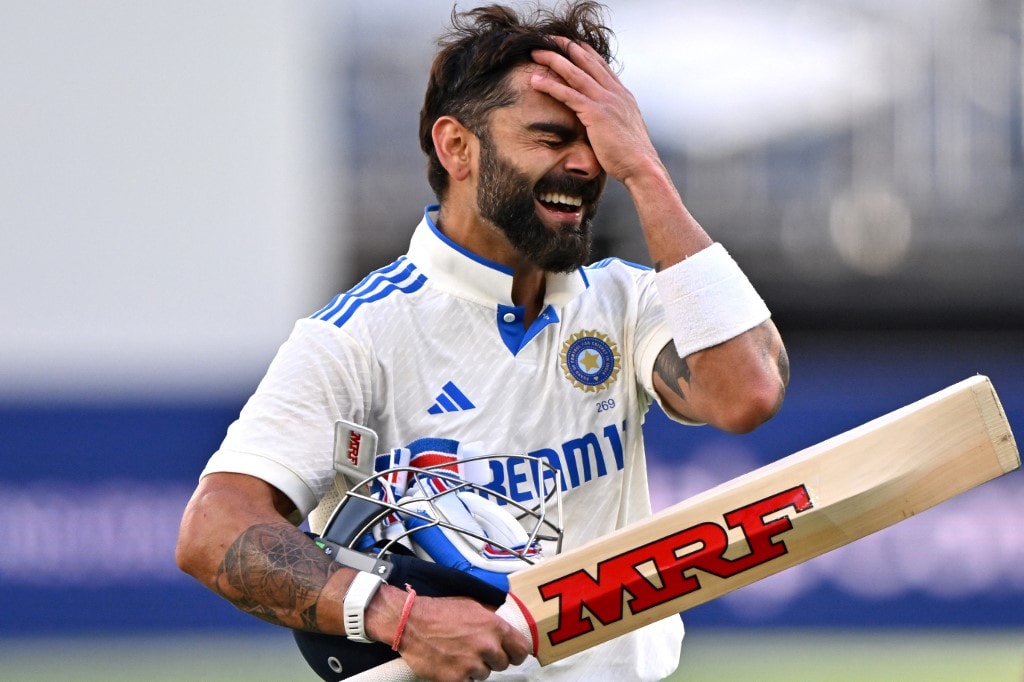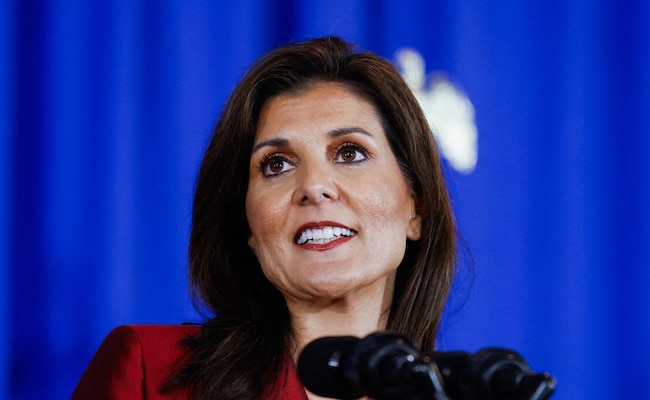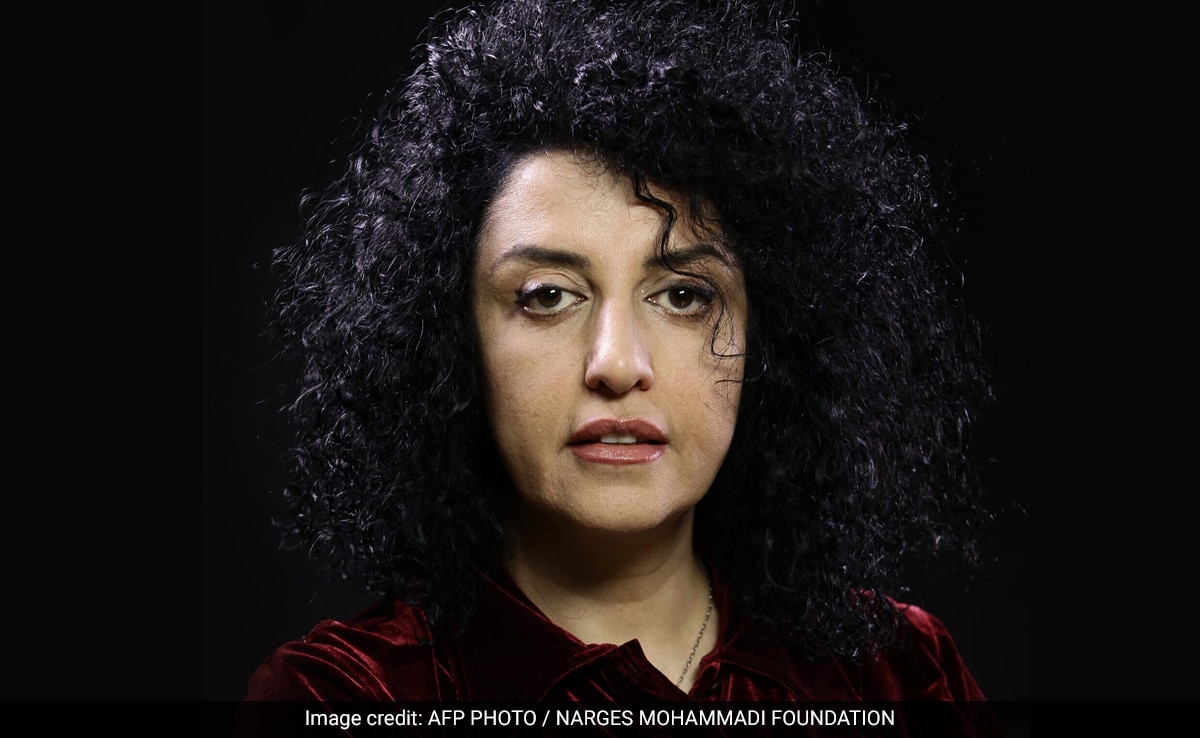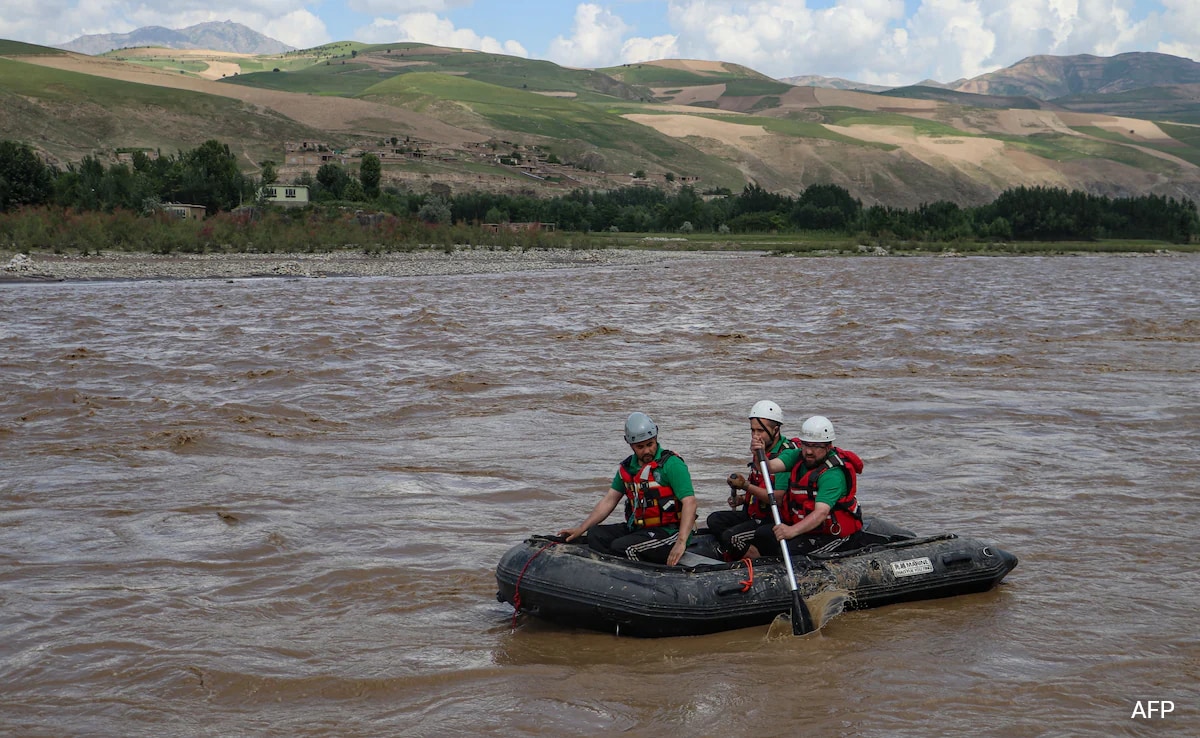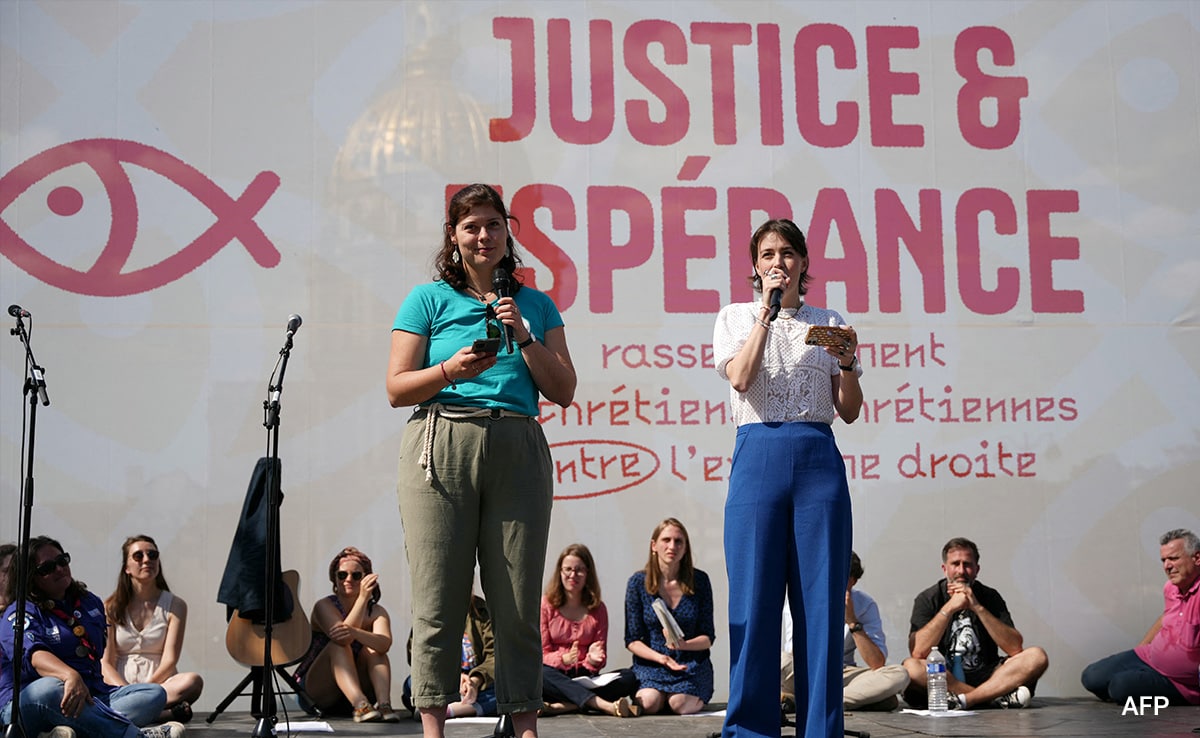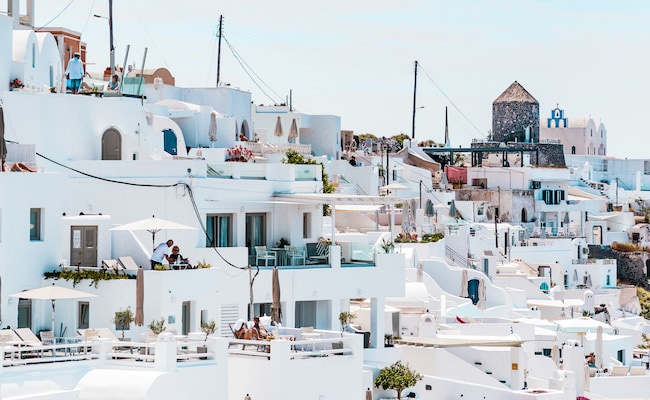Prime Minister Narendra Modi during an election roadshow in Kanpur on May 4, 2024.
| Photo Credit: PTI
The 2024 was a year marked by elections around the world. Close to 60 countries conducted their parliamentary or presidential elections, with some re-electing incumbent governments and others signalling a desire for change. From Narendra Modi coming back to power for a third term albeit without a majority to Donald Trump’s forceful comeback as the 47th President of the U.S., here is a look at a few significant elections from around the world.
India
It was the third straight win for Mr. Modi and the BJP when the results of the General election were announced on June 4. However, the BJP lost its parliamentary majority and became dependent on its allies. The BJP-led NDA won 291 seats against the Congress-led INDIA bloc’s 234 seats. Mr. Modi rode on nationalist agendas fuelled by the inauguration of the Ram Temple in Ayodhya, among others.
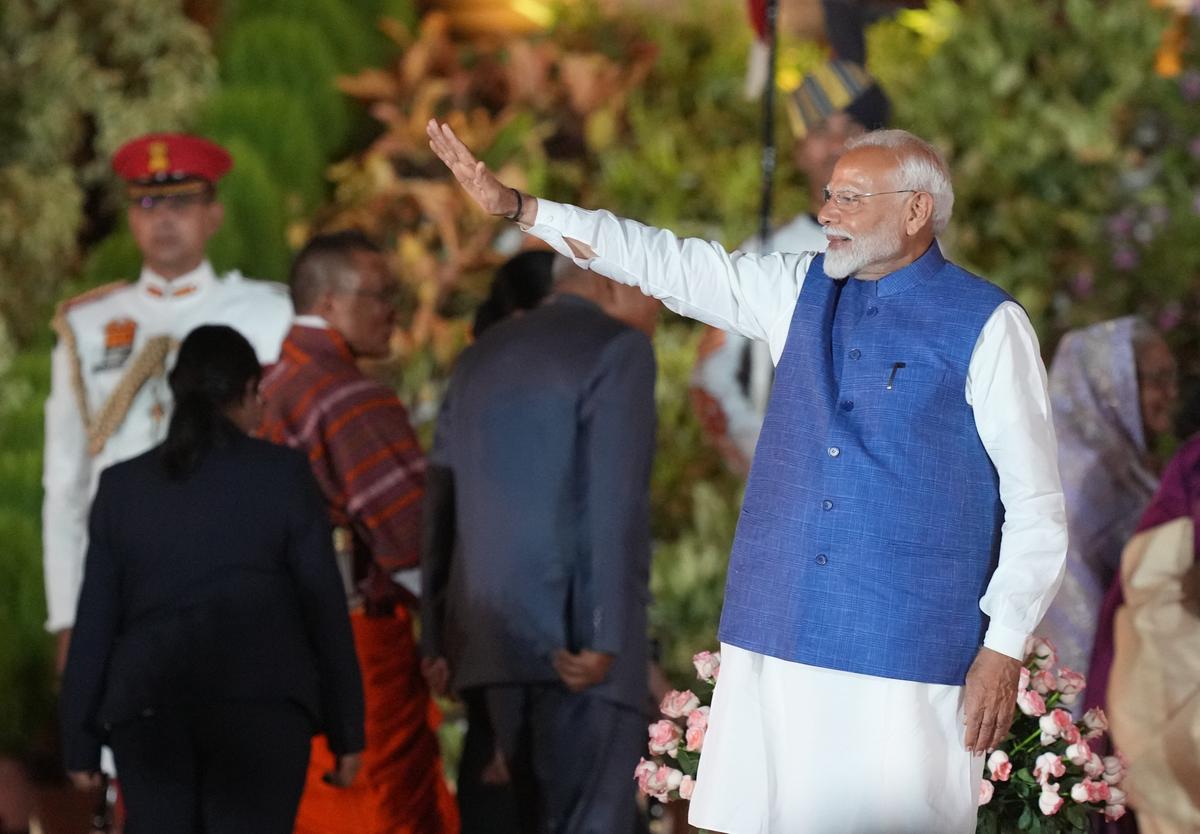
Narendra Modi after taking oath for a third term on June 9, 2024.
| Photo Credit:
PTI
Pakistan
Shehbaz Sharif on March 3 became the Prime Minister of Pakistan for a second time to lead a coalition government after he comfortably won a majority in the newly-elected Parliament. Mr. Sharif was the consensus candidate of the Pakistan Muslim League-Nawaz and the Pakistan Peoples Party. Mr. Sharif played a key role in keeping together a coalition for 16 months after the Parliament voted former Premier and rival Imran Khan out of office in 2022, and in securing a last gasp International Monetary Fund (IMF) deal in 2023. With the PML-N and PPP coalition winning a comfortable victory, Mr. Sharif was chosen as PM while PPP chief Asif Ali Zardari – widower of ex-PM Benazir Bhutto – was elected President, for the second time.
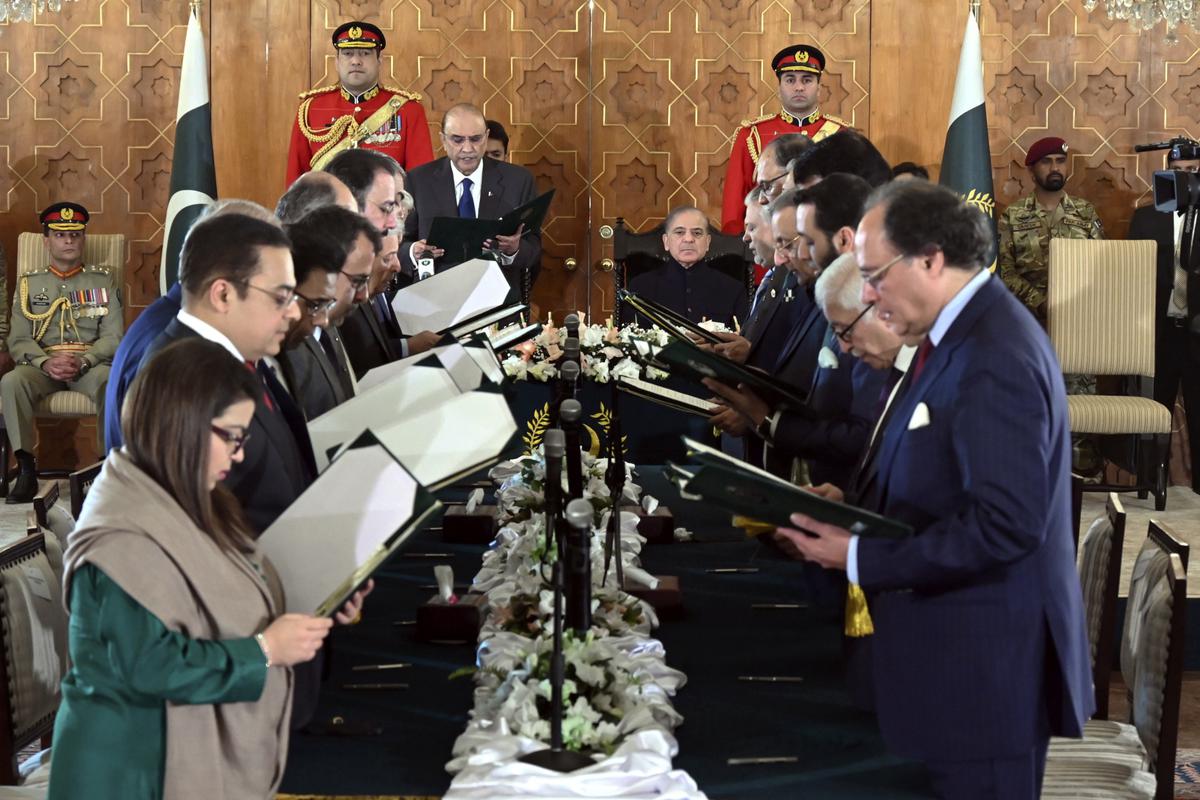
Pakistan President Asif Ali Zardari administers the oath to Federal Ministers as Prime Minister Shehbaz Sharif watches during a ceremony at the Presidential Palace, in Islamabad on March 11, 2024. Photo: Pakistan President’s Office via AP
United States of America
Former President and Republican Donald Trump made a forceful comeback as he won a second term in office on November 6. He defeated Vice-President and Democratic nominee Kamala Harris, and will take charge on January 20, 2025. Mr. Trump won 292 Electoral College votes and Ms. Harris 224. His new term will likely see a major shift in domestic and foreign policy and transform the functioning of various American institutions. It was a major comeback for a President who refused to accept defeat four years ago, sparked a violent insurrection in the U.S. Capitol, was convicted of felony charges, and survived two assassination attempts.
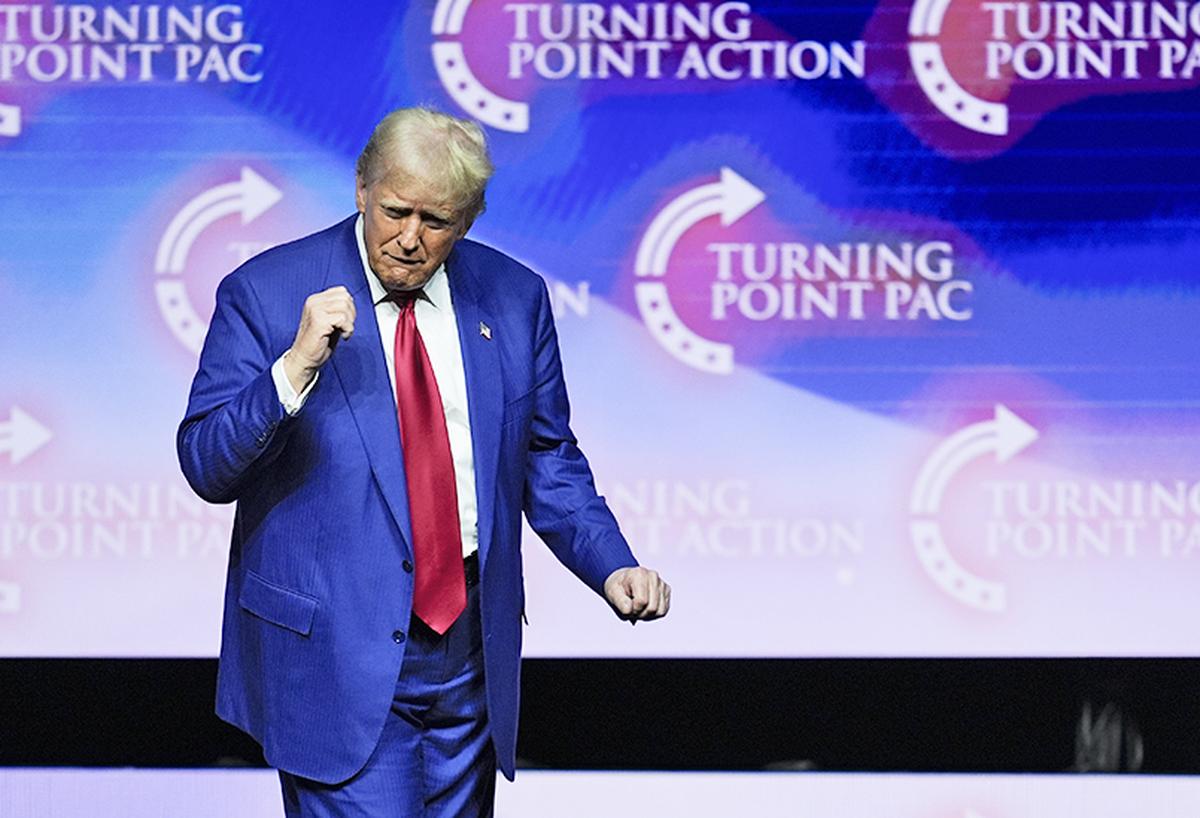
Republican Presidential nominee former President Donald Trump dances on stage after speaking during a campaign rally in Las Vegas.
| Photo Credit:
AP
United Kingdom
On July 5, Britain‘s Labour Party came to power with a landslide victory. Labour leader Keir Starmer became Prime Minister, replacing Rishi Sunak and ending 14 years of Conservative rule. Labour won 410 seats in the 650-seat House of Commons while the Conservatives secured 118. Mr. Starmer pledged to start a period of “national renewal”. Mr. Starmer’s recurring defence has been that Brexit, the COVID pandemic, the Russia-Ukraine war and the disastrous policies of the Tory government that had completely destroyed the nation’s economic progress. Mr. Starmer stood for the leadership race with an agenda of 10 key pledges.
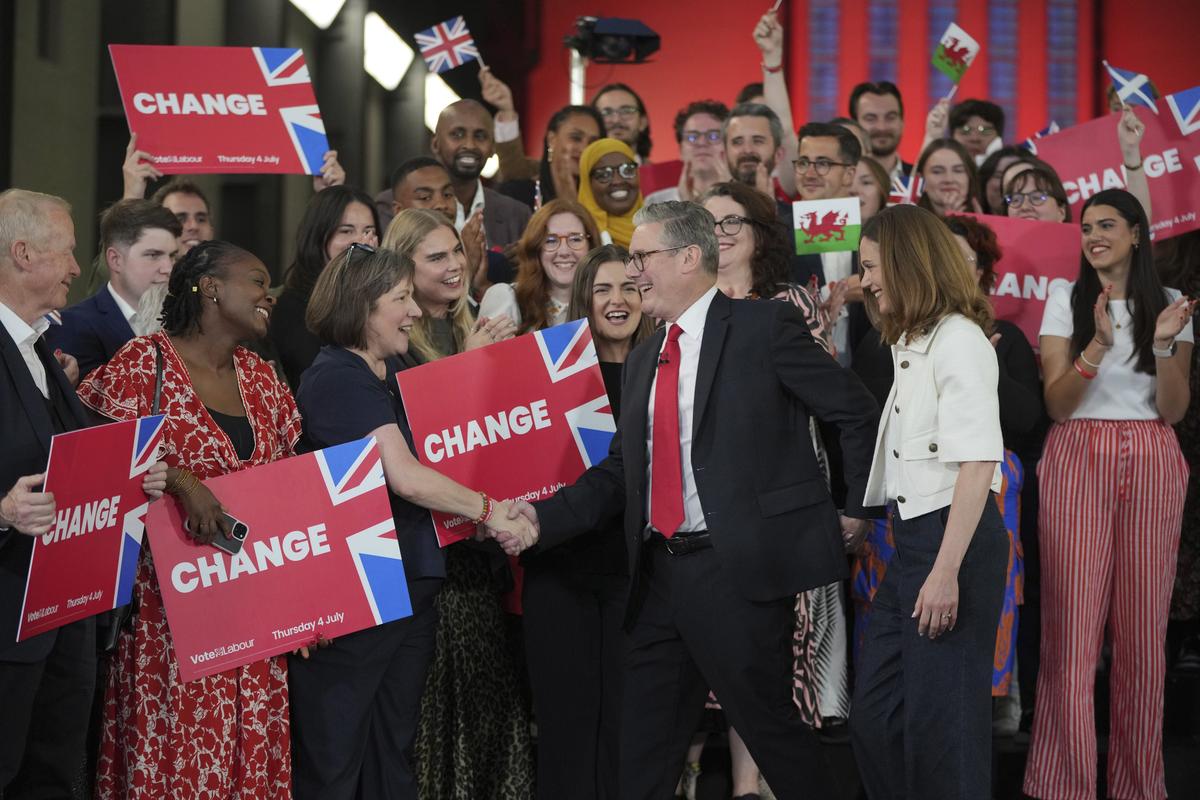
Labour leader Keir Starmer with supporters at the Tate Modern in London on July 5, 2024.
| Photo Credit:
AP
South Africa
In the parliamentary elections held on May 29, Nelson Mandela’s African National Congress lost its majority for the first time since the end of the apartheid, though it managed to form a coalition government. The ANC’s vote share stood at 42.3%, with the pro-business Democratic Alliance at 26.3% and the Marxist Economic Freedom Fighters at 8.1%. Even though the ANC lost the majority, South African President Cyril Ramaphosa was re-elected by lawmakers for a second term on June 14, after his party struck a dramatic late coalition deal with a former political foe just hours before the vote. The deal, referred to as a government of national unity, brings the ANC together with the DA, a white-led party that had been the main opposition and the fiercest critic of the ANC for years.
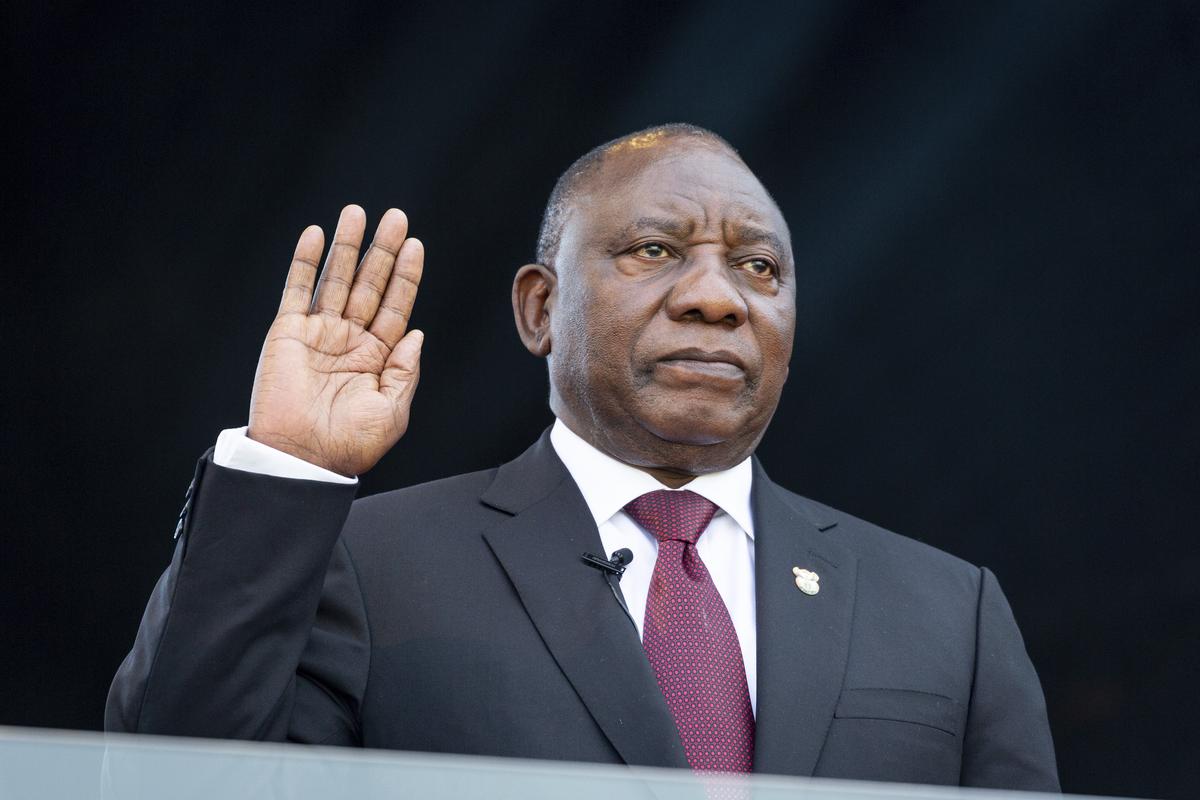
South African President Cyril Ramaphosa.
| Photo Credit:
AP
Iran
Reformist candidate Masoud Pezeshkian won Iran’s Presidential election on July 6, after snap polls had to be held following the death of President Ebrahim Raisi in a helicopter crash on May 19. Mr. Pezeshkian promised no radical changes to Iran’s Shia theocracy in his campaign and has long held Supreme Leader Ayatollah Ali Khamenei as the final arbiter of all matters of state in the country. But Mr. Pezeshkian’s win still sees Iran at a delicate moment, with tensions high in West Asia over the Israel-Hamas war, Iran’s advancing nuclear programme, and the rise of Donald Trump would affect the relations between Tehran and Washington.
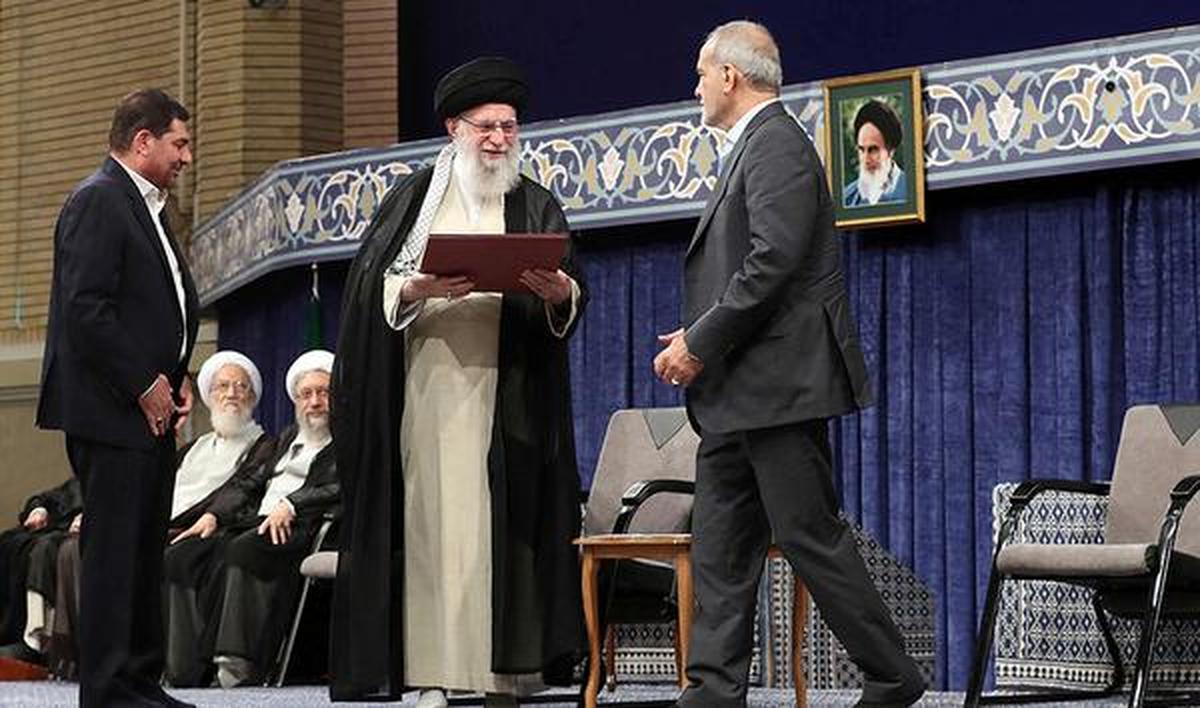
Ayatollah Ali Khamenei delivers the endorsement letter to President-elect Masoud Pezeshikan.
| Photo Credit:
AFP
France
Snap polls called by President Emmanuel Macron resulted in a hung parliament in France. Mr. Macron had called for polls three years ahead of schedule in a bid to reshape the political landscape. However, the results placed his centrist alliance second, with the Left alliance gaining the most number of seats in Parliament. The far right party, National Rally headed by Marine Le Pen, won more seats than ever before, but was still behind Mr. Macron’s party and the Left coalition. The New Popular Front— formed after elections were announced — brought the previously deeply divided Socialists, Greens, Communists and the hard-left France Unbowed together. Mr. Macron appointed Michel Barnier as the Prime Minister on September 5, but he was forced to resign when a vote of no-confidence was passed against him due to budget disputes. It was the first successful no-confidence vote in the country since 1962. He was replaced by François Bayrou on December 12.
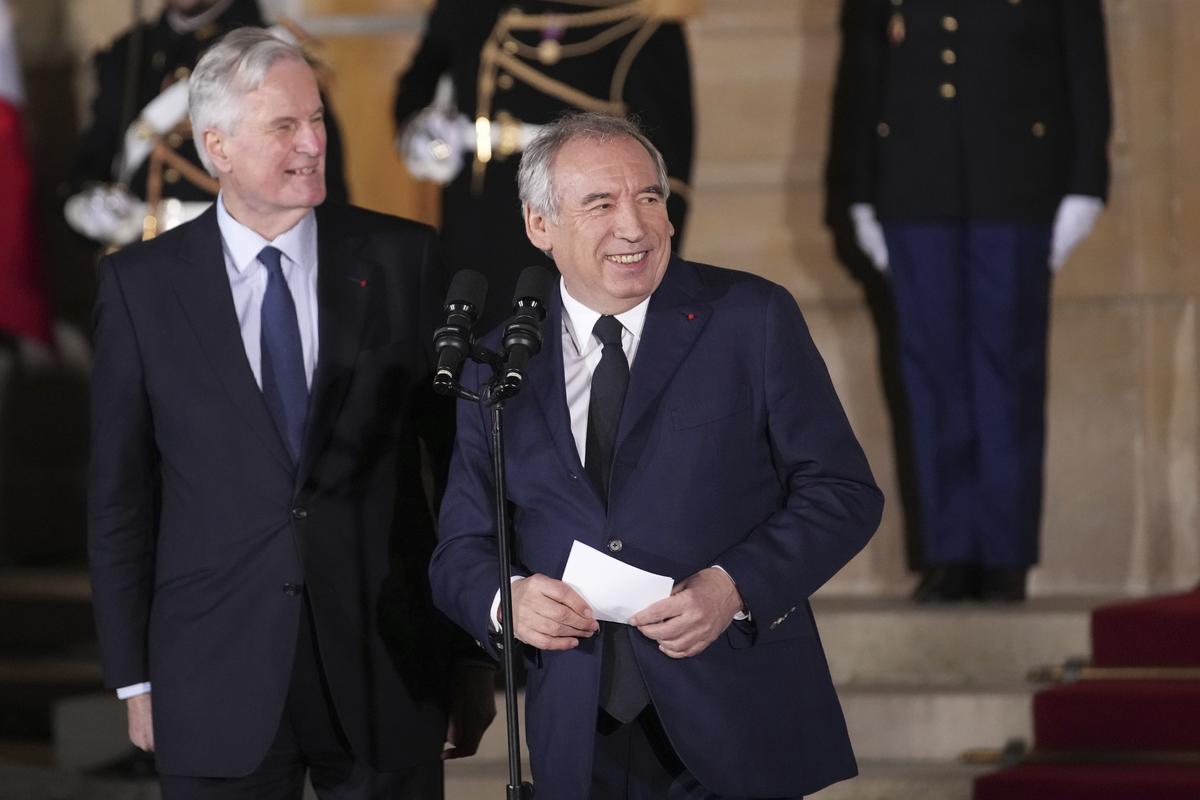
Newly-named Prime Minister François Bayrou, right, and outgoing Prime Minister Michel Barnier smile after the handover at the Prime Minister’s residence in Paris on December 13, 2024.
| Photo Credit:
AP
Sri Lanka
Sri Lanka conducted presidential and parliamentary elections for the first time after the country plunged into an economic crisis in 2022. Left leader and Janatha Vimukthi Peramuna candidate Anura Kumara Dissanayake was elected the country’s ninth executive president, after the September Presidential polls that saw a second count of votes, an exercise undertaken for the first time in the country’s election history. Soon after taking over the presidency, Mr. Dissanayake called for the parliamentary elections. His ruling alliance National People’s Power secured a landslide win with the bagging 159 out of 225 seats, securing over two-thirds majority. This was also the first election where the Tamil-majority Jaffna elected JVP, a non-Tamil party.
Bangladesh
Prime Minister Sheikh Hasina won a fourth term on January 7 as the Awami League won two-thirds of the seats in the general elections. However, following anti-government protests, Ms. Hasina fled Bangladesh and an interim government led by Nobel Laureate Muhammad Yunus was formed on August 8. Students began protesting in July when the High Court re-established a job quota reserving 30% of civil service posts for the children and grandchildren of fighters of Bangladesh’s liberation war. The government responded by shutting down universities, and using the police and military to crack down on protesters. Following a controversial comment by Ms. Hasina, wherein she compared the student protestors to children of “Razakars,” the protests intensified, and the government shut down the internet in order to disrupt communications and protests. The crackdown on the student protests led to more than 400 people losing their lives.
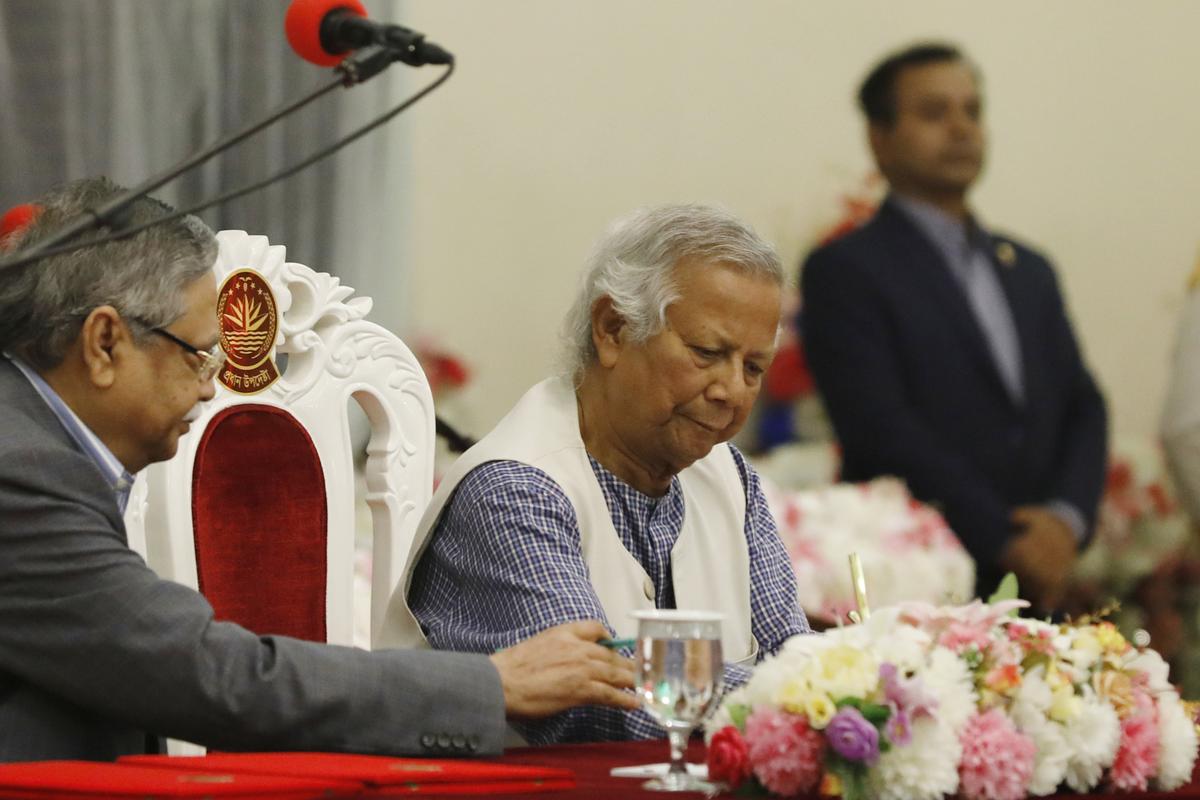
Nobel laureate Muhammad Yunus signs a document after taking oath of office as the head of Bangladesh’s interim government in Dhaka on August 8, 2024.
| Photo Credit:
AP
Mexico
Claudia Sheinbaum became the first woman to become Mexico’s President when she won the presidential elections held on June 2. She contested against opposition candidates Xóchitl Gálvez and Jorge Álvarez Máynez, also making it the first time in Mexico that the two main opponents were women. The governing party candidate campaigned on continuing the political course set over the last six years by her political mentor President Andrés Manuel López Obrador. Ms. Sheinbaum was sworn in as President on October 1, 2024 among the presence of foreign dignitaries such as Brazilian President Luiz Inacio Lula da Silva and U.S. First Lady Jill Biden. Interestingly, Ms. Sheinbaum refused to invite the King of Spain, King Felipe VI, as she accused him of failing to acknowledge the harm caused by Spain’s colonisation of Mexico.
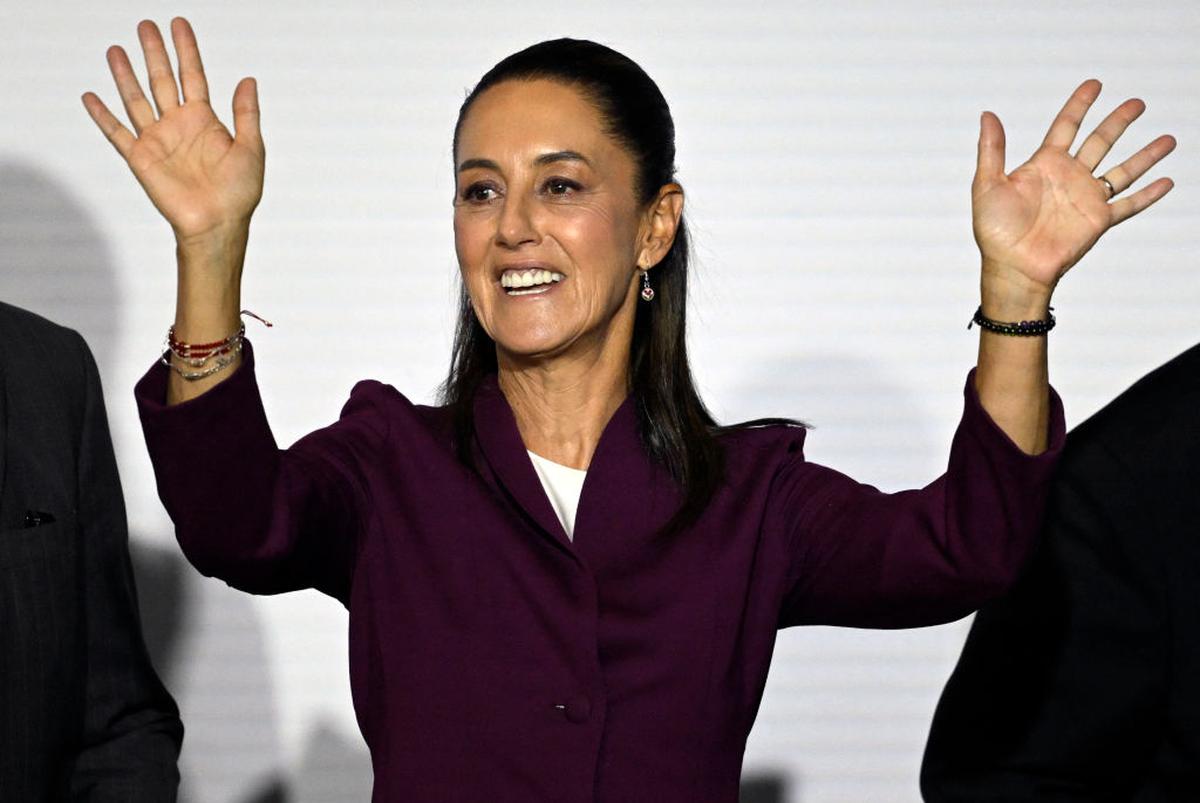
Mexico’s Leftist President Claudia Sheinbaum.
| Photo Credit:
AFP
Venezuela
Nicolas Maduro won the presidential elections on July 28. However, the results were disputed by the main Opposition candidate Edmundo González. Mr. Maduro won 51% of the votes, while Mr. González got 44%. In support of the Opposition, thousands of Venezeulans protested against the election results. Hundreds were arrested and at least 12 were killed. The election results were not only disputed by the Opposition within Venezuela, but several countries refused to acknowledge the results. U.S. Secretary of State Antony Blinken posted on X, recognising Mr. Gonzalez as the President-elect and at least 50 countries submitted a joint statement at the U.N. calling for publishing the vote tally sheets.
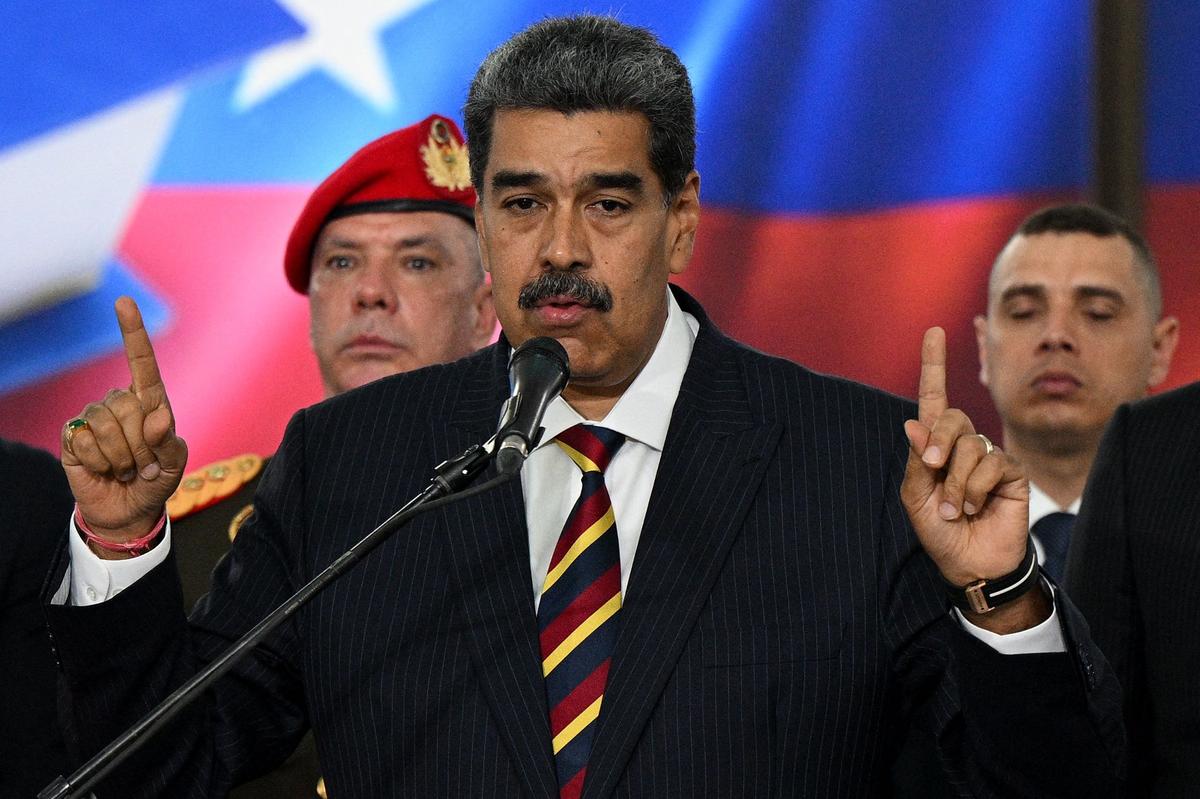
Venezuela’s President Nicolas Maduro addresses the media next to his wife Cilia Flores after appearing before the Supreme Court of Justice in Caracas on August 9, 2024.
| Photo Credit:
AFP
Russia
President Vladimir Putin was re-elected for a fifth term making him the longest-serving ruler since Stalin, on March 18. With this fiercest political foe, Alexei Navalny, dying in an Arctic prison in February, there was hardly any opponent against Mr. Putin. He won with a whopping 76 million votes, his highest tally ever. Mr. Putin has led Russia as President or Prime Minister since December 1999, a tenure marked by international military aggression and an increasing intolerance for dissent.
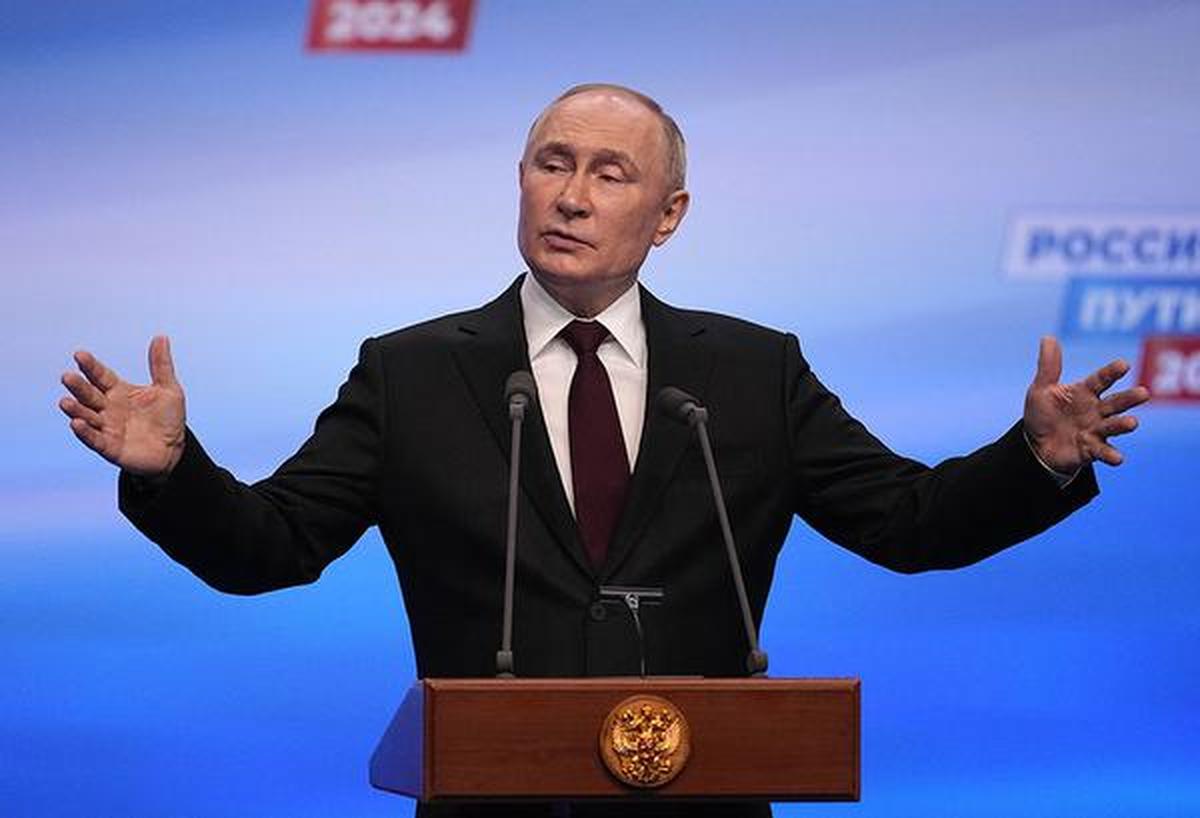
Russian President Vladimir Putin speaks on a visit to his campaign headquarters in Moscow.
| Photo Credit:
AP
Published – December 31, 2024 10:59 am IST

